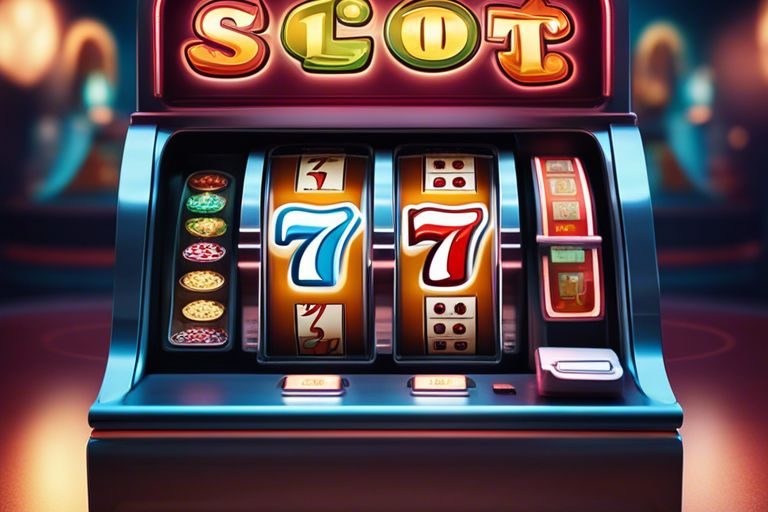What Makes Slot Games Addictive?

Most slot games are designed with a highly addictive quality that can keep players coming back for more. From bright lights and engaging sound effects to the thrill of hitting a jackpot, there are several key factors that contribute to the allure of slot games.
Understanding what makes slot games addictive can help players make more informed choices about their gaming habits and stay in control of their spending. By delving into the psychological and design elements behind the addictive nature of slot games, players can enjoy these games responsibly and avoid the potential pitfalls of compulsive gambling behavior.
The Psychology of Gaming Addiction
Behavioral Reinforcement and Rewards
For many individuals, the allure of slot games lies in the behavioral reinforcement and rewards they provide. Any successful interaction with the game, such as matching symbols or triggering a bonus round, activates the brain’s reward system. This release of dopamine reinforces the behavior, making the player more likely to continue playing in search of that next rewarding experience. The intermittent reinforcement schedules implemented in slot games, where players receive rewards at unpredictable intervals, further contribute to their addictive nature.
Cognitive Illusions in Slot Games
Games designers use various cognitive illusions to keep players engaged and coming back for more. One common illusion is the near miss phenomenon, where the player narrowly misses a big jackpot, creating the false belief that they were close to winning. This illusion tricks the brain into thinking that success is just around the corner, motivating the player to continue playing. Additionally, the use of vivid colors, flashing lights, and engaging sound effects in slot games can stimulate the senses and create an immersive experience that enhances player engagement.
Gaming can be a source of entertainment and enjoyment for many individuals. However, it is crucial to be aware of the psychological tactics employed in slot games that can lead to addiction. By understanding the behavioral reinforcement, cognitive illusions, and other psychological mechanisms at play, players can make more informed decisions and potentially avoid falling into the trap of compulsive gaming behavior.
The Mechanics of Slot Games
Random Number Generators and Fairness
While slot games may seem like they are based purely on luck, there is actually a complex mechanism at work behind the scenes that ensures fairness in the game. Random Number Generators (RNGs) are the secret sauce that guarantees the outcome of each spin is completely random and not influenced by any external factors.
The Role of Near Misses and False Wins
Slot games are designed to keep players engaged and coming back for more, and near misses and false wins play a significant role in this. Near misses give the player the feeling that they were so close to winning, while false wins make them believe they have won something when they have actually lost. These near misses and false wins trigger the brain’s reward system, keeping players hooked.
Plus, the anticipation of a win after experiencing a near miss or false win can lead to players chasing losses and spending more money on the game, making it a potentially risky behavior for vulnerable individuals.
Audiovisual Elements and Their Impact
Sound Effects and Their Role in Engagement
The sound effects in slot games play a crucial role in engaging players and enhancing the overall gaming experience. The auditory cues, such as the spinning reels, winning jingles, and bonus round soundtracks, are designed to captivate players’ attention and create a sense of excitement and anticipation. These sound effects are carefully crafted to trigger an emotional response, keeping players immersed in the game for longer periods.
Visual Stimuli and Player Immersion
For visual stimuli, slot games are a feast for the eyes. The vibrant colors, intricate designs, and animated graphics captivate players and draw them into the game world. The visual elements help create a sense of immersion, making players feel like they are part of the action. The continuous movement of the reels and the dynamic transitions between game screens help maintain player engagement and excitement.
The visual stimuli in slot games are carefully curated to enhance the player’s experience and create a visually appealing environment. The use of engaging themes, high-quality graphics, and interactive elements all contribute to keeping players entertained and coming back for more. The combination of visual stimuli with sound effects creates a powerful sensory experience that heightens player engagement and makes slot games more addictive.
The Role of Incentives
Bonus Features and Free Spins
All slot game enthusiasts will agree – one of the most enticing aspects of a slot game is its bonus features and free spins. An enticing combination of thrilling gameplay coupled with the chance to win big keeps players glued to their screens. The element of surprise and the potential for significant rewards make bonus features a crucial element in creating addiction in slot games.
Loyalty Programs and Player Rewards
Free incentives in the form of loyalty programs and player rewards play a significant role in keeping players engaged and motivated. Players are drawn to the prospect of earning rewards for their loyalty, whether it be through comp points, free spins, or exclusive bonuses. These incentives act as a driving force, encouraging players to keep spinning the reels and coming back for more.
A key factor in the success of loyalty programs is the element of exclusivity. Players feel a sense of accomplishment when they unlock special bonuses or reach VIP status, fostering a deeper connection to the game.
Social Dynamics of Slot Gaming
The Influence of Community and Social Play
Many slot games today incorporate community features that allow players to interact with each other, creating a sense of belonging and camaraderie. These social elements can add an extra layer of enjoyment to the gaming experience, as players can share their wins, compete in tournaments, or send gifts to one another. In addition, social play can enhance the overall engagement and retention of players, as they are more likely to return to the game to connect with their virtual friends.
| Key Point | Explanation |
| Community Features | Allow players to interact, share wins, and compete. |
| Enhanced Engagement | Players are more likely to return to the game for social connections. |
Competition and Social Comparison
Any form of competition can add an exciting dimension to slot gaming, as players strive to outperform each other and climb leaderboards. Social comparison is a powerful motivator, driving players to improve their skills and invest more time and money into the game. By incorporating competitive elements, slot games tap into the human desire for recognition and status, keeping players hooked as they chase the thrill of victory.
| Competition | Social Comparison |
| Drives players to outperform each other. | Motivates players to improve skills and invest more. |
Comparison: Social comparison in slot gaming can lead to increased engagement and competitiveness among players. It can also create a sense of urgency and drive players to spend more time and money in pursuit of higher rankings.
Play
Play: The social dynamics of slot gaming can significantly impact players’ experiences and behaviors. By fostering a sense of community and competition, slot games can create a more immersive and addictive gameplay environment.
Regulatory and Ethical Considerations
Responsible Gaming Measures
Unlike other forms of entertainment, slot games have the potential to become addictive due to their design and mechanics. Gaming authorities and operators recognize this and have implemented responsible gaming measures to ensure that players are protected from the risks of problem gambling. These measures include providing self-exclusion options, setting deposit limits, and offering resources for those who may be experiencing issues with their gaming habits.
The Debate on Slot Game Regulation
For years, there has been an ongoing debate surrounding the regulation of slot games. Measures have been proposed to address concerns about the impact of these games on vulnerable populations, such as minors and individuals with gambling addiction. While some argue that stringent regulations could impede on personal freedoms, others believe that it is imperative to have clear guidelines in place to protect individuals from the potential harm associated with excessive gambling.
Strategies for Responsible Play
Setting Limits and Self-Exclusion Options
After indulging in the excitement of slot games, it is vital to establish limits to prevent getting carried away. Setting limits on time and money spent on playing can help control your gaming habits. Most online casinos offer options for players to set daily, weekly, or monthly deposit limits. Self-exclusion is another powerful tool that allows players to exclude themselves from accessing online casinos for a specified period, providing a necessary break to reevaluate their gaming behavior.
Tools and Resources for Players
Strategies for responsible play go beyond setting limits and exploring self-exclusion options. Tools such as reality checks, session limits, and budget calculators are available to help players monitor their gambling activities. Resources like educational materials, helplines, and support groups can offer assistance to individuals who may be struggling with gambling addiction. These tools and resources aim to promote a safe and enjoyable gaming environment for all players.
Tools and Resources for Players: While setting limits is a crucial step, utilizing tools and resources can further enhance responsible gaming practices. Reality checks can remind players of how long they have been playing, while session limits can help in controlling the duration of gaming sessions. Budget calculators are useful for managing finances and ensuring that players do not exceed their spending limits.
To wrap up
With these considerations in mind, it is evident that slot games utilize a combination of psychological and game design elements to create an addictive experience for players. The use of reward schedules, visual and auditory stimuli, as well as the element of control all play significant roles in keeping players engaged and coming back for more. By understanding these factors, both game developers and players can have a better grasp of the underlying mechanisms that make slot games so compelling.
In order to combat potential issues related to addiction, it is crucial for players to practice responsible gaming habits and to set limits on their gameplay. Game developers also have a responsibility to design games in a way that minimizes the risk of addiction and promotes a healthy gaming environment. By acknowledging the secret sauce that makes slot games addictive, we can work towards creating a more informed and balanced approach to enjoying these popular games.
Recommended Posts

Spark of Genius Slot Game by Play’n GO
May 17, 2024

Spinomenal Unveils Quest to the Underworld
May 17, 2024

Slot Streamers – New Faces of Online Gaming
May 16, 2024




